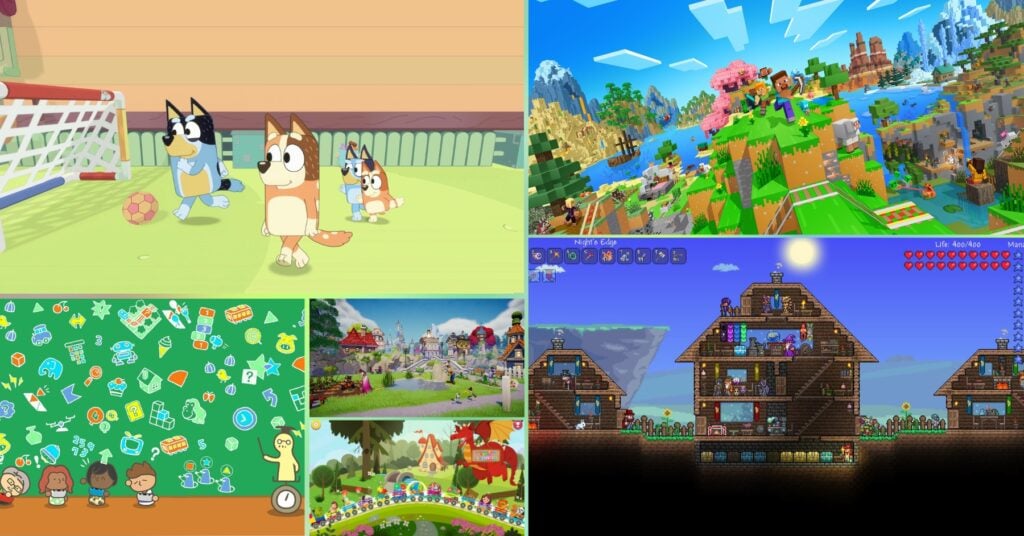
As a dad of three, I’m fully aware of how difficult it can be to get kids back on a school routine. That is why, as school starts creeping closer, I’m using video games to get my kids ready for back-to-school. It may seem counterproductive, but video games aren’t what they used to be, and many of them come with legitimate lessons and life skills built into play. There is a reason gamification has taken the country by storm, and these games further solidify that idea.
Summer is a time when kids get to be kids with no structure or time constraints. It’s a stark comparison to the rigid schedule that the school year brings with early mornings, activities, and excessive social interaction that your summer children may have forgotten about.
These video games can be used to remind kids that there are only 104 days of summer vacation, and when school comes along to end it, they had better be ready. I’ve broken my family’s favorites down categorically into learning, scheduling, responsibilities, focus, and teamwork & diversity.
Learning
It’s no secret that kids regress a little in the summer because they don’t have the rigid school schedule. Instead of forcing my kids to do summer workbooks, I make them play one of these games when they hit me with the dreaded, “I’m bored.”
Big Brain Academy (Ages 5+)
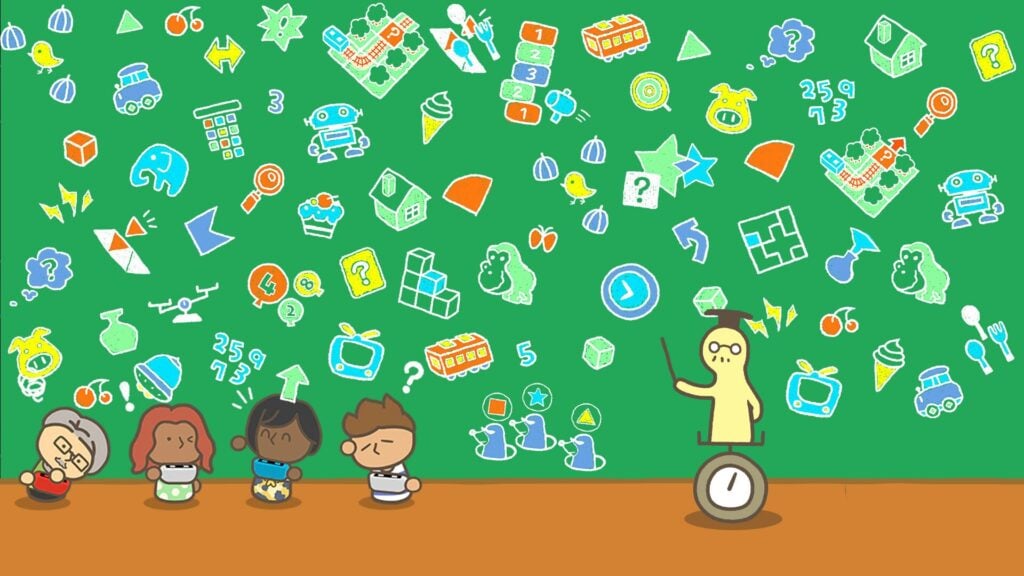
We’re big on trivia in my house, which is why I love the Big Brain Academy series. The newest version of Big Brain Academy is Brian vs. Brain, and it has some awesome game mechanics. Two to four players can play online or couch co-op, but it doesn’t force everyone to answer the same questions.
Questions are all tailored to age groups, which is fantastic because my kids are spread out at 6, 12, and 15, so everyone can play equitably. If no one else can play, kids can still challenge themselves with brain training and online play.
Are You Smarter Than A 5th Grader? (Ages 7+)
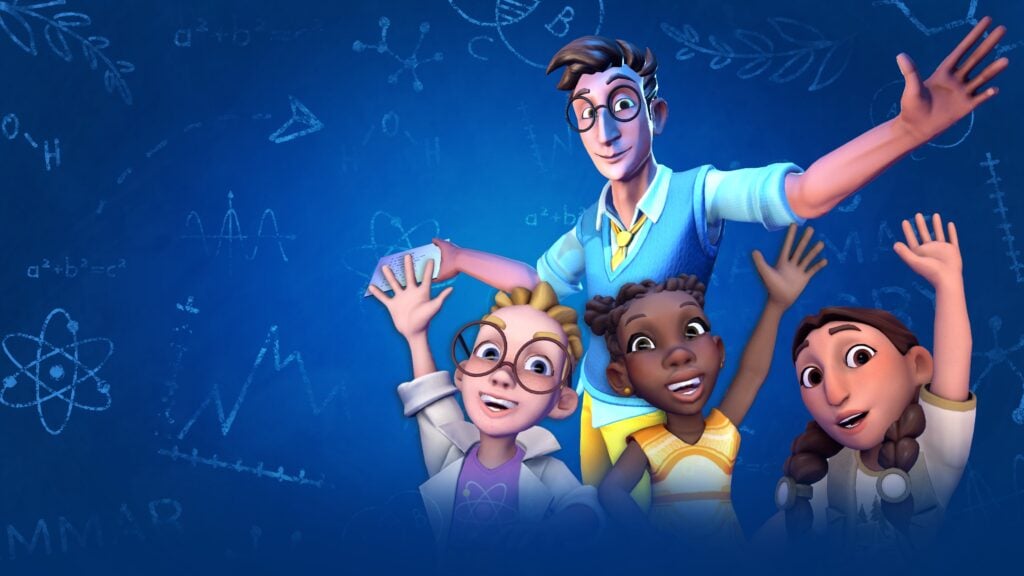
I love this game for the sheer volume of topics that are covered. It is a fun mix of trivia and mini games that keeps the kids engaged without repetition. Just like Big Brain Academy, you can play this game as a couch coop with family, or online against friends.
Games like this keep the brain working and remind us of academic ideas beyond the core subjects, like earth science and chemistry, so kids go into their school year already using their critical thinking skills.
PlayStation’s Educational Games for Kids (Ages 4-10)
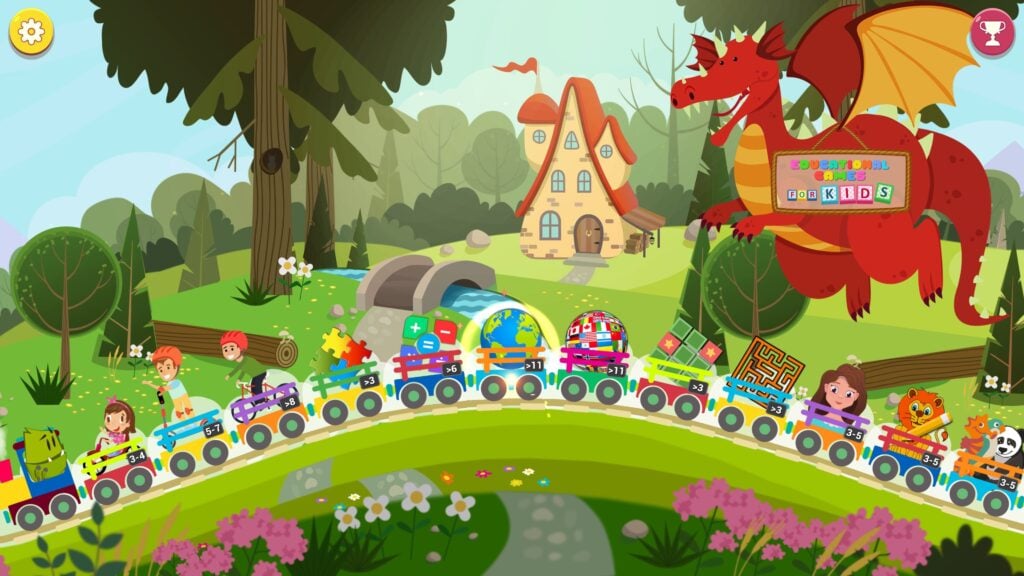
Despite its generic name, this game packs a punch in terms of learning. This digital download is budget-friendly and offers activities for kids of all ages. It also takes a holistic approach to learning by training not just memory, but reflexes and logic as well.
My favorite part about this game is that when kids complete every level with three stars or more, it unlocks a secret dragon game as a reward.
Schedule
Summer is a time for schedules to melt away and let kids be kids, but that becomes a double-edged sword when it is time to get kids back on a regular sleep schedule. These games all require kids to stay on a schedule, so that idea remains in the back of their minds.
Animal Crossing: New Horizons (Ages 6+)
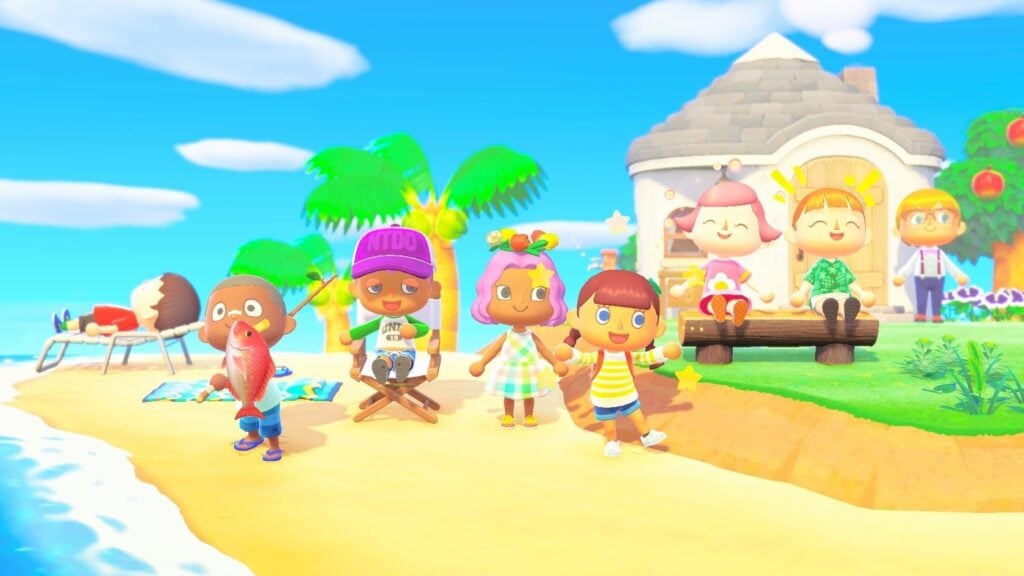
Animal Crossing: New Horizons finds itself on many lists because it is one of the few all-around perfect games for all ages. I love Animal Crossing because it reminds my kids of the importance of sleep schedules in the game and real life. It has day and night cycles in addition to seasons. Kids are also required to do tasks and responsibilities that require planning and prioritizing.
Every day they play is a reminder of how the real world requires organization and sleep to perform at your best.
Minecraft (Ages 6+)
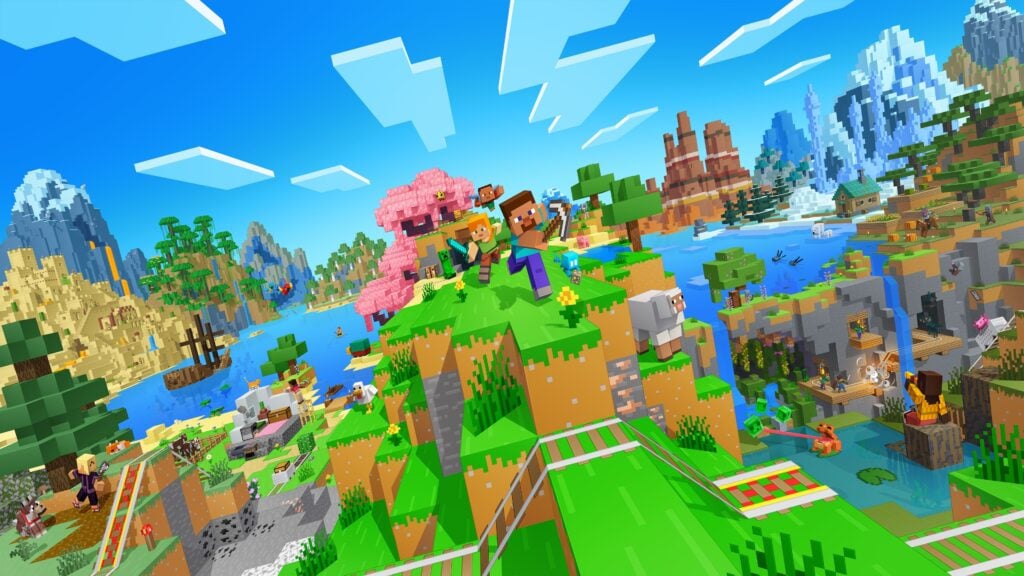
Minecraft is such a fantastic game for kids that it could go anywhere on this list. However, the sleep aspect of this game is underrated. Players aren’t forced to sleep in Minecraft, but they can sleep to skip the night and protect themselves from the dangers that come after dark, as well as get rid of pesky thunderstorms.
To put it more simply, Minecraft reminds all of us that when the night feels too overwhelming, getting some sleep will make things seem better in the morning.
Pixel Cafe (Ages 10+)
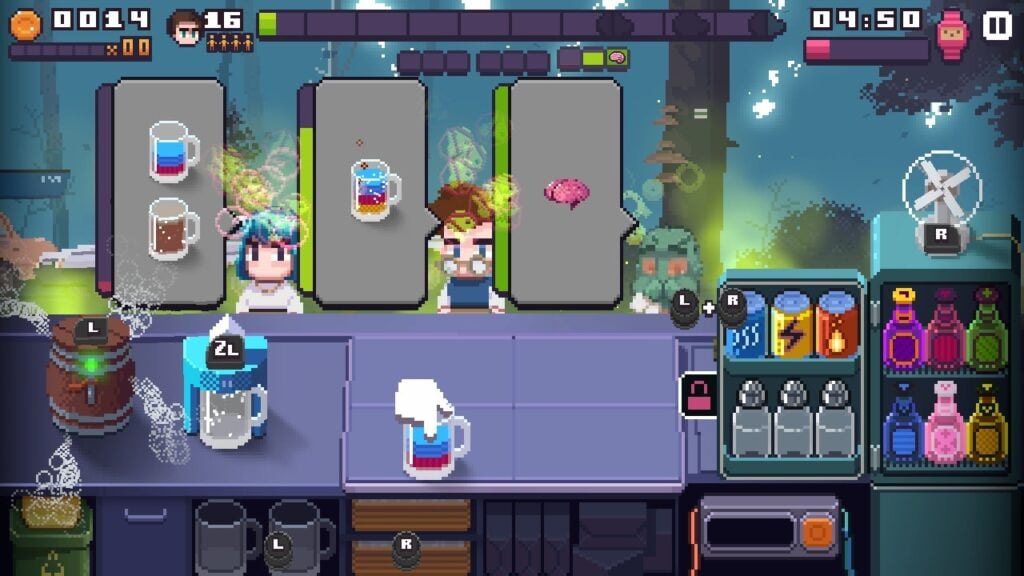
Pixel Cafe is one of many games that fit under the “time management” subgenre of video games. These types of games are popular on mobile devices and are also available on consoles. Pixel Cafe is big in my house because it is a nice change of pace game. It is half storybook and half time management, so it is the perfect game to unwind with at night.
The skills kids learn about managing their characters’ time efficiently are easily translatable to real-world situations.
Responsibilities
Responsibilities can sometimes wane a bit in the summer because there is always time to get to everything (for the kids, at least). During the school year, it is essential to stay on top of responsibilities so nobody in the house falls behind. These games are excellent for reminding kids of the importance of responsibilities all summer.
Dreamlight Valley (Ages 7+)
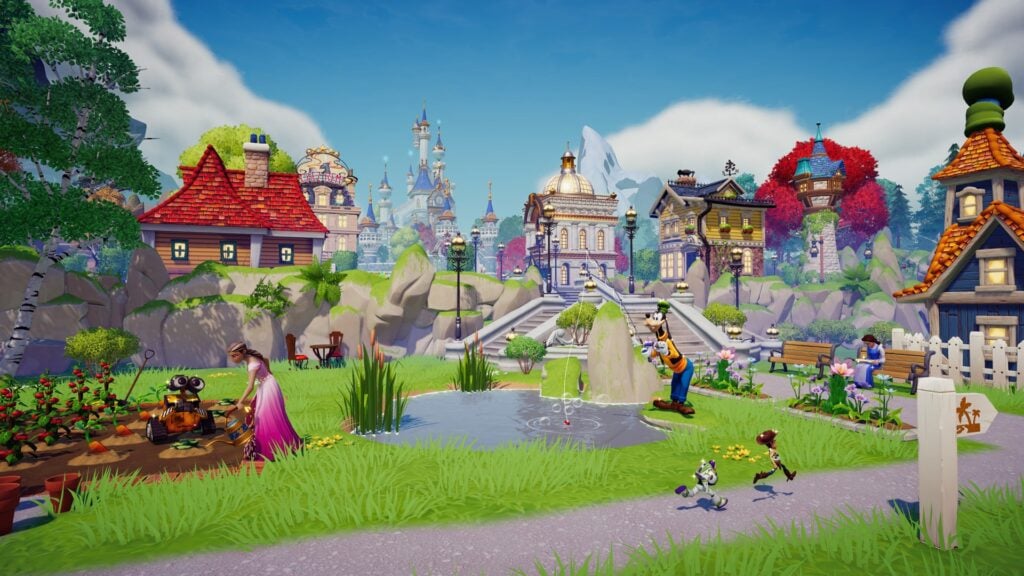
The thing I like most about Dreamlight Valley is that it’s a Disney property, so I know the whole family can enjoy it. This is another lifestyle RPG in the vein of Sims and Animal Crossing, but with your favorite Disney characters. Dreamlight Valley is another one of those games that could land anywhere on this list, but I chose it because of the responsibility aspects. Not only do you need to do things like fish and cook to survive, but you are also responsible for maintaining your village. Along with all of these responsibilities, kids must also maintain and grow relationships.
It is an overall fantastic reminder that while summer is fun, real life requires attention to responsibilities and relationships, no matter the time of year.
Terraria (Ages 9+)
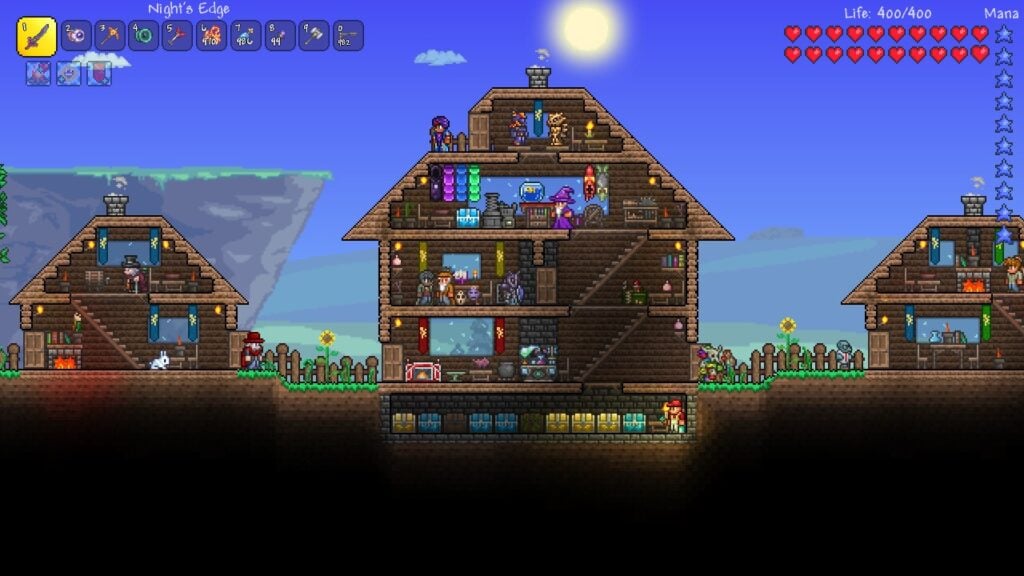
Terraria isn’t just a great game to remind kids about responsibilities during the summer; it’s a great way to teach them about the ups and downs of life in general. First, I love the fact that it is an old-school 16-bit throwback, as it reminds me of my childhood days. Terraria borrowed from a lot of different games, but players will be quick to associate it with a side-scrolling Minecraft.
This game teaches kids everything from the value of hard work to planning to trial-and-error problem-solving, and even touches on the consequences of death. As a whole, this game is fantastic for teaching kids not just about responsibilities, but life in general.
The Game of Life (Ages 6+)
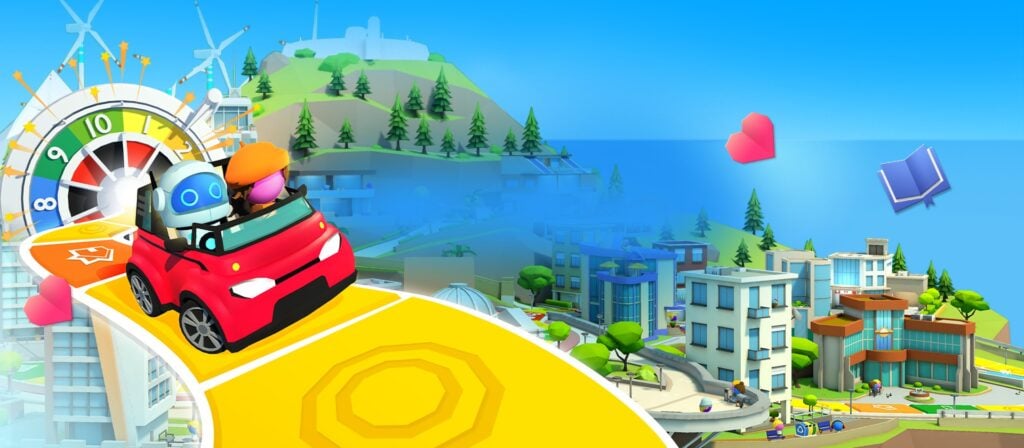
Yes, that Game of Life. My kids discovered a version of the board game that was ported for the Switch, and now we play it almost every night. I absolutely love it, because it’s fun to play but also teaches kids about life without getting too complicated. I love the fact that they have to make real-world decisions in the game, like whether to go to college or start a family. However, I also like that they are forced to make much smaller decisions in the game, like changing jobs or choosing to buy a new computer versus going to a concert.
Just like in the real world, every action has consequences, and The Game of Life is an excellent way to remind them of that in a safe and fun environment.
Focus
The classroom is one of the few places where kids are still required to focus on a single task for long periods. As an adult with ADHD, I get that focusing on anything your brain isn’t interested in can be a pain. The closer we get to school, the more I start suggesting some time with these games.
Dr. Kawashima’s Brain Training (Ages 8+)

Those familiar with Nintendo titles will recognize Dr. Kawashima from the Brain Age games on the 3DS. You probably also know how fun and challenging these games can be. Nintendo released an actual concentration game on the 3DS a few years ago, but this version has many of those same games.
Not only does this game force players into using logic and critical thinking skills, but it also forces them to keep their focus on the problem until it is solved.
No Man’s Sky (Ages 12+)
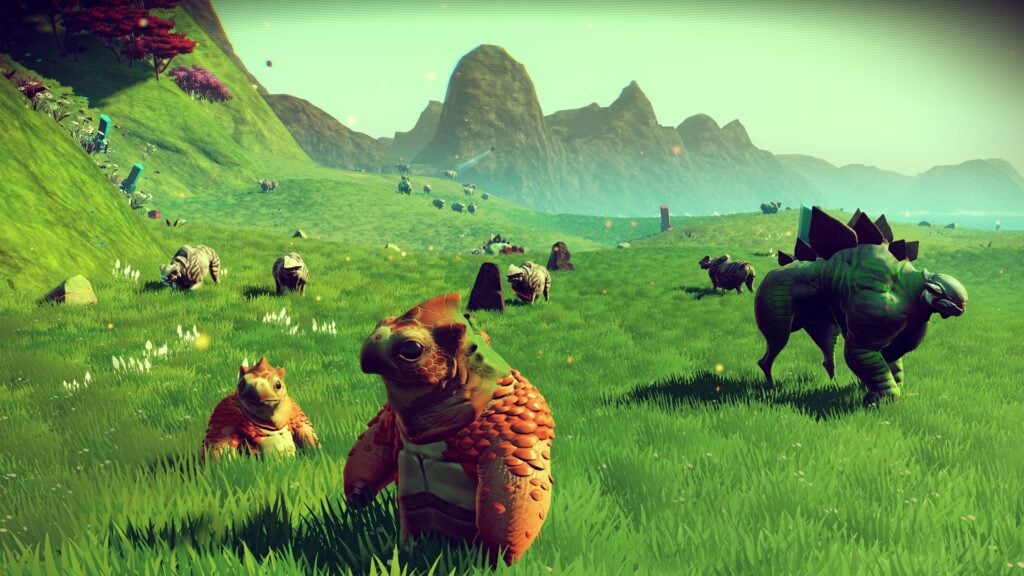
I love No Man’s Sky for concentration because it tricks you into paying attention far longer than your brain should. This game isn’t specifically made to train concentration, but flying through space and seeing similar-looking planets and stars zooming around you is about as attention-grabbing as driving through the cornfields of the rural Midwest.
On the complete opposite side, this game trains concentration through repetitive tasks like searching planets for resources and giving you a menagerie of aliens, plants, and geology to appreciate. In other words, kids won’t get bored with the boring parts because they will be too laser-focused on finding the fun parts.
Teamwork and Diversity
Teamwork is an essential part of school, whether it is in group projects or after-school activities. During the summer, there is often an every person for themselves mentality while parents are busy with work and life. These games remind kids that working together has its benefits, especially when it is to reach a common goal.
Overcooked (Ages 8+)
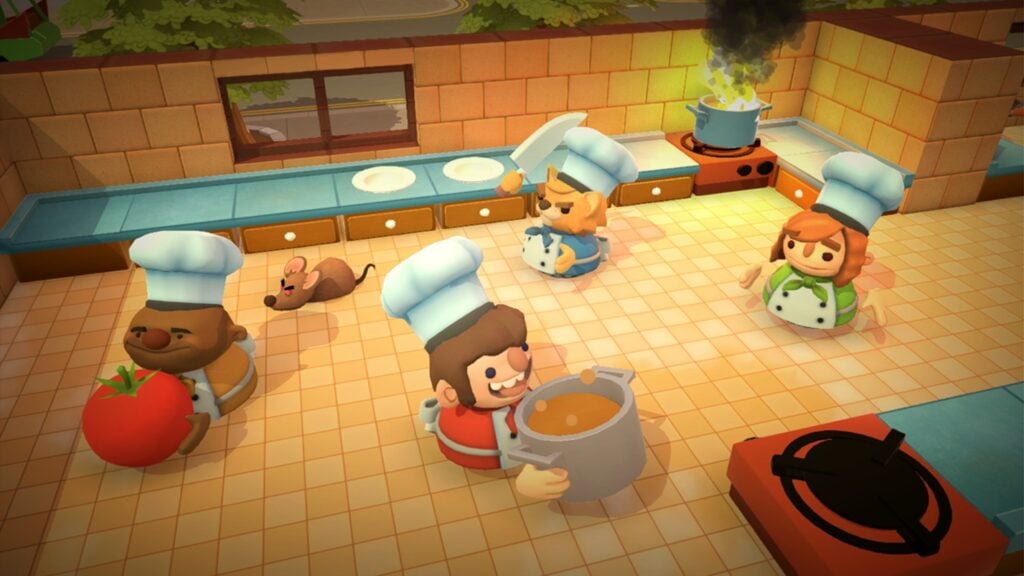
Whether you are trying to teach your kids teamwork or just looking for a fun family activity, Overcooked is the perfect game. The idea is simple: each character plays a different vital function at a restaurant, cooking, doing dishes, taking orders, etc. Players must work together to ensure that the restaurant runs smoothly.
Despite being a low-stakes game, this one can get a bit heated if someone isn’t pulling their weight, which is a great analogy for life in general.
Endless Ocean (Ages 7+)
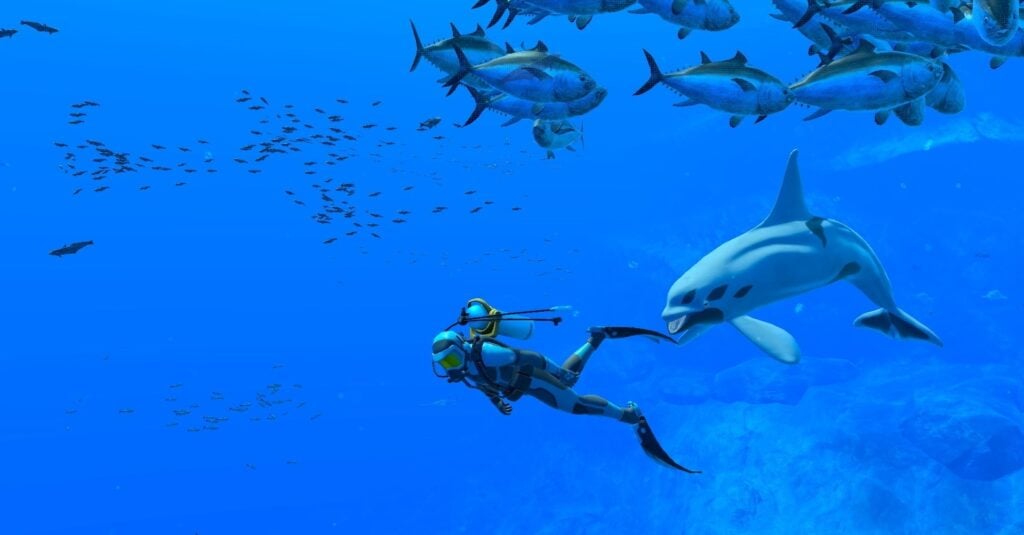
We are big animal lovers in our house, but I’ve never been able to keep a fish tank. Instead, my kids get to travel the entire ocean with this gorgeous game. The idea isn’t complex, but there are many ways this game promotes teamwork and diversity. This one brings a bit of peace and calm to the house as the kids scour the ocean for all kinds of marine life. The sheer amount of different animals they find reminds us all that every individual has beauty and purpose, no matter what they look like.
Beyond that, players can share their location and “teleport” to each other. They can also tag each treasure and rare fish for their team to collect, and when enough of the map is explored, the game automatically opens up all areas for the team. So, the more in sync the team is, the faster you can unlock the entire map to explore.
Bluey: The Video Game (Ages 3–6)
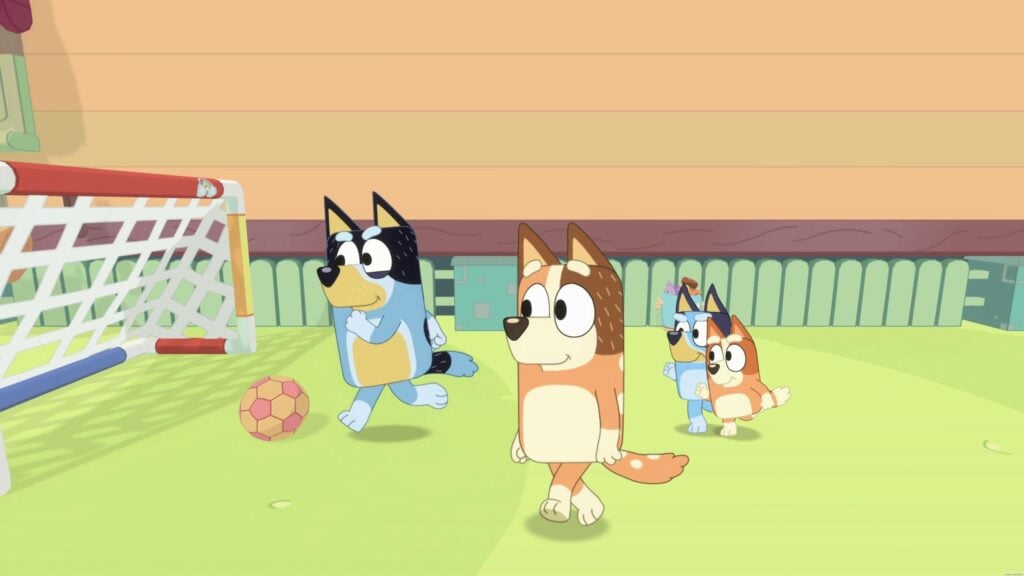
Every generation has a blue dog to guide them through childhood. Our parents had Huckleberry Hound, we had Blue from Blue’s Clues, and our kids have Bluey. This Australian Shepard has taken the entire world by storm, and for good reason. As if having a TV show that is good enough to make parents pay attention wasn’t enough, they had to go and make a video game that teaches a variety of skills, including teamwork. Teamwork isn’t part of the Bluey game; it’s the whole thing. There is no questioning that this is a game made for the age level that Bluey is made for, so there isn’t a lot of complex gameplay here. Just parents and kids working together to solve puzzles and challenges, and being rewarded with new outfits, stickers, and clips from their favorite show.
I hope your children enjoy these video games as much as my kids do, and hopefully, they help prepare them for back-to-school in unique, fun, and often educational ways.
